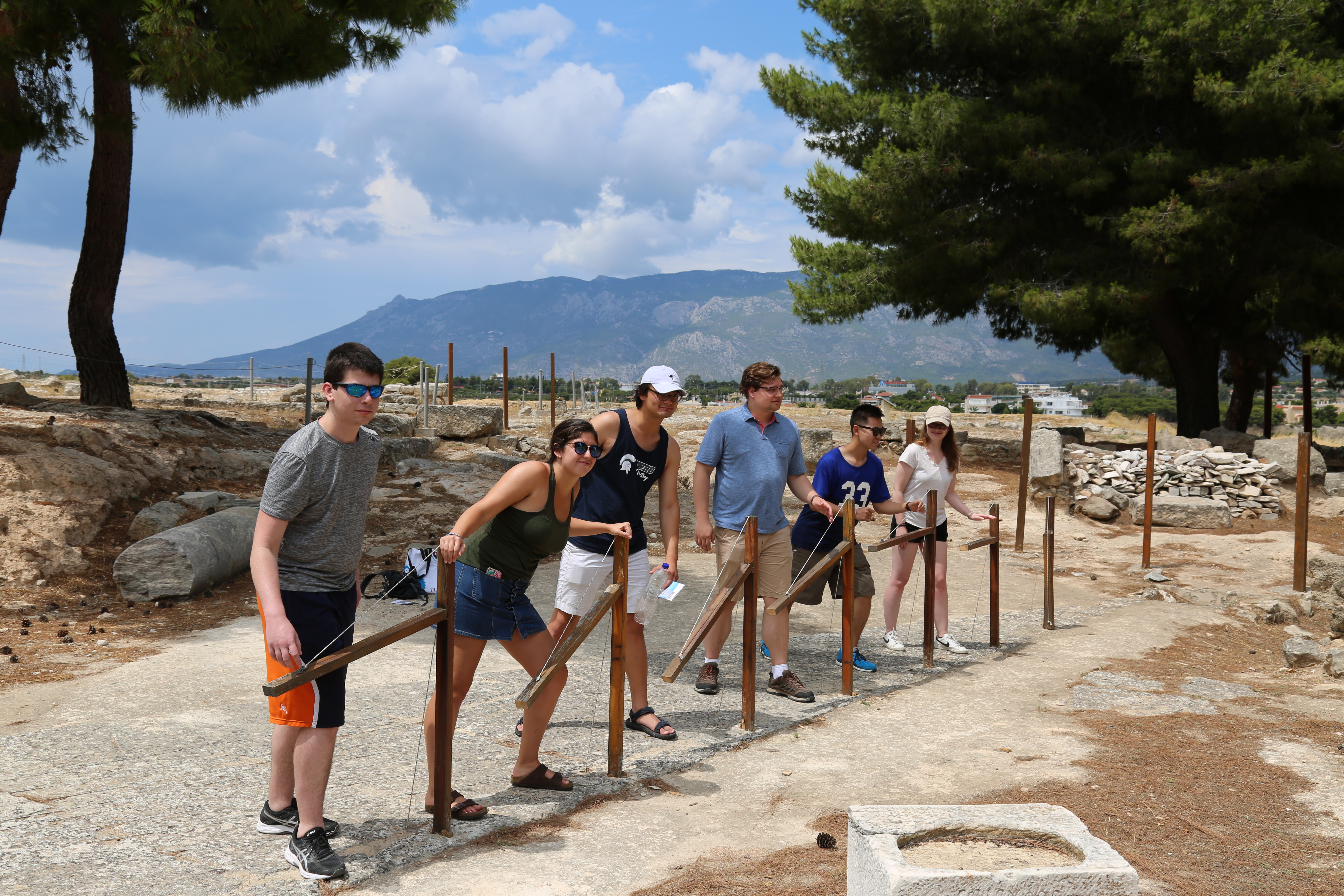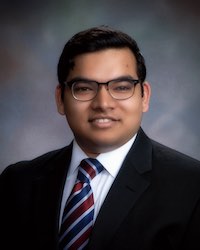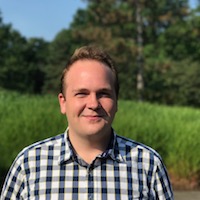September 24, 2018 | Issue 1.0
Edited by Rachel Sternberg
In This Issue:
Letter from the Chair
Introducing Professor Evelyn Adkins
Spring 2019 Courses
Study Abroad Opportunities
2018 Classics Graduates and What They’re Up To
Dear Alumni and Friends of Classics,
I write to give you an update on all the exciting things that are happening in the Classics Department at CWRU.
This past year, even by our own standards, was busy. The big news was that after a national search for a Latinist that included four candidates coming to campus to deliver outstanding talks, we hired Evelyn Adkins. Professor Adkins received her PhD from the University of Michigan. She works on the ancient novel, and in particular Apuleius’ charming Metamorphoses. She has quickly integrated herself into the Department and has begun to contribute very much in very many ways, including helping to organize this year’s Classics Day on Friday, October 5, which will bring to campus over 100 HS Latin students from 5 different schools in the area. Evelyn also has a background in material culture which, pending approval, she hopes to put to use next summer in leading students on a three-week trip to Rome (CLSC 326-426) and its surroundings. I should also say that an archaeologist named Mark Hammond will be teaching CLSC 199 in Athens over Spring Break. If you are a Classics major or minor and interested in going on either of these Study Abroad trips, be sure to contact me for fellowship support!
In other faculty and staff news, Peter Knox, The Eric and Jane Nord Family Professor and Director of the Baker-Nord Center for the Humanities, won a prestigious Loeb Fellowship to work on a new Loeb edition of Ovid’s mytho-poetic tour de force, the Metamorphoses. In addition, Rachel Sternberg was awarded a Baker-Nord Center Faculty Fellowship to work on her next book Cultural Waves: The Greek Contribution to Human Rights. Meanwhile, Timothy Wutrich was nominated for the Carl F. Wittke Award for Excellence in Undergraduate Teaching and also became the new Director of the World Literature Program, which has new major and minor requirements. We also continue to benefit from the excellent teaching of our Visiting Assistant Professor Paul Hay and Florin Berindeanu our Instructor of World Literature. Maddalena Rumor, a Visiting Assistant Professor in the History Department who teaches half her courses for Classics, also began teaching Akkadian and other courses in the Ancient Near East and Egypt. Finally, we have a new part-time administrative assistant named Brook Sabin who will work closely with our full- time administrative assistant, Jessica Jurcak. I personally want to thank all these colleagues for helping make CWRU’s Department of Classics such a successful and friendly place to work.
I also want to note that all of Mather House was “refreshed” this past summer with new carpet, paint and lighting. In conjunction with this, the Classics Department was able to secure $5,000 from the Bovre Fund of the Baker-Nord Center for the Humanities and $5000 from the Dean’s office to pay for upgrading Mather House 408 – our classroom and library – to become a “Zoom Room”. This means we now have multi-media capability in our classroom. In addition, as many of you know, last spring we also threw out all the old, dark, particle-board or industrial-metallic bookcases on the fourth floor. We’ve now ordered new, wooden bookcase that will soon arrive and give the fourth floor a lighter and more welcoming feel.
In other important news, the Classics Department’s proposal to initiate an MA in Classical Studies continues to make its way through the long and winding approval process (we’re at the final stage of the journey). In addition, last December, the Classics faculty voted to change our name to the Department of Classical and Ancient Near Eastern and Egyptian Studies and to create a minor in that field. Both changes must still traverse the long path of approval, but we already have approval for the new ANEE rubric and three students have petitioned the Dean of Undergraduate Studies to start the minor now. I should mention here, too, that the Anthropology Department has hired a specialist in Ancient Egyptian History and Archaeology named Meghan Strong to teach a course on Mediterranean archaeology this coming spring (MW 12:45 – 2:00 PM) that should be cross-listed as ANTH-ANEE-CLSC 344. We are also interested in having her teach courses on Egypt and Hieroglyphics. We hope that these courses will be the beginning of a robust collaboration between the Classics and Anthropology Departments.
I also want to give a big shout out to our graduates this past spring, Angel Bai, Nikhil Edwards, Brad Odhner, and (minor) Bronson Hausmann! Angel and Nikhil ended up getting fellowships or stipends to graduate school or law school. Εὖγε!
ΧAΙΡΕΙΝ,
Prof. I.
Get to know Professor Evelyn Adkins, new to the Classics Department!
 Q: Tell us briefly about your background.
Q: Tell us briefly about your background.
I’m originally from Gainesville, Florida, but I’ve been in the upper Midwest since college and I love it, especially the Great Lakes area. I went to Macalester College in St. Paul, MN, followed by graduate school at the University of Michigan in Ann Arbor, where I earned an MA in Classical Art and Archaeology and a PhD in Classical Studies. Although most of my research is on literature, I’ve also worked on archaeological projects in Greece, Italy, and Turkey, and I spent a year at the American School of Classical Studies in Athens. Before CWRU, I worked at Kenyon College, Penn State, and the Intercollegiate Center for Classical Studies in Rome. Fun facts: I was once a competitive Scottish Highland Dancer, I can’t whistle, and I have a collection of plush donkeys, some of which you’ll see in my office.
Q: Explain the topic of your dissertation for students.
My dissertation (which I’m now turning into a book) is on The Golden Ass or the Metamorphoses, a Latin novel written in the 2nd century AD by the North African Roman author Apuleius. It’s about a man who has an unfortunate encounter with witches and gets turned into a donkey, and if you want to know what happens after that, you’ll have to read it yourself — or take a class with me! When Lucius becomes a donkey, he can’t speak, which means he can’t tell people he’s really a human being, a free man, and a Roman citizen. My research focuses on speech and power in the novel, including Lucius’ loss of power when he is unable to speak and how other characters in the novel use speech, silence, written text, and nonverbal communication to try to exert power over one another. Apuleius lived during a very authoritarian period in Roman history when power was concentrated in the hands of the emperor, and my work looks at literary representations of how individuals might exert power locally in their day to day lives and what their experiences might be if they lost power or if they were marginalized because of their class, slave status, gender, or sexual orientation.
Q: Other research interests?
In addition to my research on Apuleius’ Metamorphoses and Greek and Latin literature of the Roman Imperial period, I’m also interested in discourse analysis, gender and sexuality, Roman social and cultural history, and archaeological methods and material culture.
Q: What will you be teaching the Fall and Spring?
This fall, I’m teaching Sword and Sandal: The Classics in Film (CLSC 224), where we’ll be watching and discussing films about ancient Greek and Roman myth, history, and culture like Disney’s Hercules, 300, Spartacus, and Gladiator. I’m also teaching Latin 201: Latin Prose Authors, with a focus on The Gallic War, Julius Caesar’s first-hand accounts of his career-building campaigns in Gaul and, later in the semester, selected readings from Cicero. I’m not sure yet what I’ll be teaching this spring, so stay tuned!
Q: Are you glad to be at CWRU? Why?
I am so delighted to be here at CWRU! In addition to having wonderful colleagues in the Classics and Art History Departments and, as my colleagues have repeatedly told me, wonderful students, I’m looking forward to taking advantage of all of the great resources and cultural institutions we have at CWRU, in University Circle, and through the Baker- Nord Center for the Humanities. I’ve already spent quite a bit of time in the Cleveland Museum of Art and the Kelvin Smith Library, and I look forward to visiting them again soon with all of you and with visitors to CWRU like all the middle and high school Latin teachers and students coming out for this year’s Classics Day!
Spring 2019 Courses:
CLSC 102 – Introduction to Byzantine History, 500-1500
Study the development of the Byzantine empire from the emperor Constantine’s conversion to Christianity and founding of the eastern capital at Constantinople to the fall of Constantinople to Turkish forces in 1453. Taught by Elizabeth Todd.
CLSC 204 – Heroes and Hustlers in Roman Literature
Using a variety of literary genres from the period of the Roman Republic into the empire, this course focuses on heroism vs. self-promotion, love vs. lust, and the struggle between democracy and tyranny. Parallels with modern life and politics will be drawn. Taught by Timothy Wutrich.
CLSC 232 – Gods and Gladiators: The World of Ancient Rome
Study the enduring significance of the Romans through their history, literature, art, and philosophy. Taught by Evelyn Adkins.
CLSC 295 – Medical Terminology
A self-paced, computer-assisted course on the etymology of modern English as well as the basic principles on which roots, prefixes, and suffixes combine to give precise meanings to composite words, which is then applied toward learning medical, biomedical, and scientific terminology. Taught by Maddalena Rumor.
CLSC 320/420 – Alexander the Great: Materials and Methods
This seminar, as part of the SAGES sequence, offers students a firm grounding in the discipline of Classics, with an emphasis on the diverse materials, methods and approaches that can be brought to bear on the study of Greco-Roman antiquity. Taught by Paul Iversen.
CLSC 331/431 – Dante and the Classical Tradition: Middle Ages in Modernity
Through the complex work of Dante, this course introduces the concept of classical tradition as an all-encompassing cultural term, and focuses on how we understand it today as a result of Dante’s writings. Taught by Florin Berindeanu.
CLSC 337/437 – Ancient Medicine
A self-paced, computer assisted course on the etymology of modern English as well as the basic principles on which roots, prefixes, and suffixes combine to give precise meanings to composite words, which is then applied toward learning medical, biomedical, and scientific terminology. Taught by Maddalena Rumor.
Language Courses:
GREK 101 – Elementary Greek I
Beginning course in Greek language, covering grammar (forms and syntax) and the reading of elementary selections from ancient sources. Taught by Paul Hay.
GREK 201/401 – Greek Prose Authors
Readings from authors such as Plato, Lysias, Xenophon, and Herodotus. Taught by Paul Hay.
GREK 305/405 – Readings in Ancient Philosophy: Plato
Reading and interpretation of selected dialogues by Plato or other philosophical works. Taught by Paul Hay.
LATN 102 – Elementary Latin II
An introduction to the elements of Latin: pronunciation, forms, syntax, vocabulary, and reading. Taught by Timothy Wutrich.
LATN 202/402 – Vergil
Primarily readings from The Aeneid; selections from Vergil’s other work may be introduced at instructor’s discretion. Taught by Timothy Wutrich.
LATN 380/480 – Advanced Topics in Latin Literature
Content will reflect particular interests of students and faculty and timeliness of topics. Taught by Evelyn Adkins.
Study Abroad Opportunities:

Classics students on a study abroad trip this summer in Greece at the starting gate at ancient Isthmia. Pictured, from left to right: David Meshnick, Rio Castro, Joshua Breckenridge, Bronson Hausmann, Alexander Liu, and Samantha Rodgers.
CLSC 199 – Athens: Idea and Identity from Socrates to Byron
This course explores how the Classical Athenians identified themselves, and how that identity related to a broader Greek identity. It also explores how the idea of Classical Athens was received under subsequent rulers of the city (especially the Romans), and how it was re-conceived for the modern Greek state. Students travel to Greece over Spring Break, March 9-16, 2019. Taught by Mark Hammond.
Stay tuned for a possible summer course in Rome: CLSC 326-426, taught by Evelyn Adkins!
2018 Classics Graduates and What They’re Up To Now!
 Angel Bai, a triple major in Classics, Anthropology, and Evolutionary Biology, decided to pursue a master’s in Library and Information Science with the goal of working for a cultural or historical institute, perhaps managing an archival
Angel Bai, a triple major in Classics, Anthropology, and Evolutionary Biology, decided to pursue a master’s in Library and Information Science with the goal of working for a cultural or historical institute, perhaps managing an archival
collection someday.
So she applied to nine schools — and got into all of them.
Her combination of majors “all built me into a person who can take an interdisciplinary perspective. All the studies gave me a more complete understanding of the world around me.”
Most of her coursework was in Classics, and she studied Ancient Greek for three years. “Greek is wacky,” she says. “It makes your brain work in different ways. It gives me a good way to sort out problems that are confusing.”
“Classics is challenging in an unconventional way and it gave me a perspective that many of my peers don’t have.” For example: “Current issues often echo antiquity. Other young people think it’s all new, has never happened before….”
“Classics has helped me become more empathetic: I like hearing these voices from the past that offer something different from what I hear from other people – and they express some truths that have withstood the test of time. I like hearing human voices preserved from the past.”
“Also, I enjoyed the smaller, tight-knit community. When you have the same professors in multiple classes, you get to know them better. You can see what they know. I enjoyed the small class size! I can just blurt out questions, so I feel more comfortable.”
Asked for what advice she would offer undergraduates trying to choose a major: “If you like Classics, then you’re suited! Choosing Classics (or other humanities majors) won’t close any doors. Employers are looking for the skills these fields teach.”
 Nikhil Edward applied to 26 law schools and won acceptance at 13 of them. By late March he had gotten some very strong financial offers (most schools gave him half, and one highly-ranked state school gave him a full ride). Eventually he chose the College of William and Mary’s Marshall-Wythe School of Law, the oldest law school in the United States.
Nikhil Edward applied to 26 law schools and won acceptance at 13 of them. By late March he had gotten some very strong financial offers (most schools gave him half, and one highly-ranked state school gave him a full ride). Eventually he chose the College of William and Mary’s Marshall-Wythe School of Law, the oldest law school in the United States.
Though Nikhil started out at CWRU as a pre-med, he said, “What I was doing in Classics I really enjoyed, and I use the skills I learned there: reading, writing, analysis.
“One dean at a big state school said that my doing Classics, and enjoying the process, was a definite plus factor in my acceptance.”
“Reading ancient Greek or Roman texts is a scavenger hunt – that’s why I enjoy it. When I go through a text, how old it is, the gravity – searching for the meaning literal and metaphorical – the weight of that… It’s enjoyable striving to achieve the best translation I can.”
“With the smaller classes you can get the discussion that helps you understand the material and leads to debate, something you definitely won’t get in a large lecture class. Law school has large lecture classes in the first year, but smaller seminars after that. My experience with small classes will help.”
In 2017, he went to Greece over Spring Break as part of CLSC 199. “That was a high point in my education,” he says. “I’ve traveled a lot, and had even been to Greece before, briefly. But after three years of study, it felt deep and meaningful. There’s nothing like it! I was thoroughly amazed and dumbfounded by all of it.”
“Classics helped me find what I want to do. It is the most holistic study I could have gotten. You can explore so many facets. That helped me realize I wanted to do law: Rome furnishes the basis of our laws. …This is the best way to explore a wide range of topics, that is possibly unmatched by any other major.”
 A double major in Physics and Classics, Brad Odhner has gone directly into industry by moving from part-time to full-time with Keithley Instruments, an electronics manufacturer based in nearby Solon.
A double major in Physics and Classics, Brad Odhner has gone directly into industry by moving from part-time to full-time with Keithley Instruments, an electronics manufacturer based in nearby Solon.
Asked about balancing his two majors, he replied: “It was not
a question of balancing. It was a pleasure. Each one relieved the other: they used different parts of my brain, so when I got tired of doing problem sets, I would read art history, or when I got tired of working on a paper, I’d open my physics textbook.”
In Classics, he said, “I liked the small class size. Most classes are like a round-table presentations. I really liked it: it was very effective.
And: “I was pleased with the departmental course offerings. There was always something interesting being offered even if I was unable to take it due to scheduling conflicts.”
